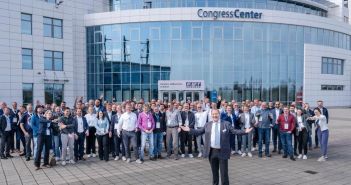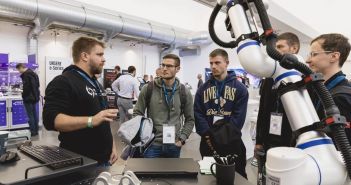The Falling Walls Conference panel on AI governance, initiated by TUM, brought together Amelie Heldt from the Federal Chancellor’s Office, Urs Gasser, Dean of TUM School of Social Sciences and Technology, Helmut Krcmar, Founding Dean of TUM Campus Heilbronn, and Isa Sonnenfeld, a technology expert who was previously employed by Google. They engaged in a discussion on the challenges and opportunities of regulating artificial intelligence (AI).
Table of Contents: What awaits you in this article
The Challenges of Regulating AI in a Rapidly Evolving Technological Landscape
The regulation of AI in a rapidly evolving technological landscape presents a significant challenge. Amelie Heldt emphasized the need for long-term rules that strike a balance between specificity and adaptability. She highlighted the crucial role of judicial interpretation in determining how these regulations will be applied. Urs Gasser underscored the diversity of global governance models, contrasting Europe’s strict legal approach with the more flexible frameworks in countries like Singapore and Brazil. Both participants agreed that regulatory frameworks must enable learning and adaptation alongside the development of AI technologies.
Isa Sonnenfeld emphasized the importance of collaborative governance and highlighted the need for agile regulation that can respond to technological advancements. Europe is lagging behind, which is why it is necessary to establish regulatory frameworks that promote innovation.
Importance of Collaboration for Effective KI Governance and Innovation
The participants of the discussion unanimously agreed on the crucial role of promoting innovation for effective AI governance. According to Isa Sonnenfeld, a collaborative approach involving academia, industry, and government is necessary to drive innovation while mitigating risks. She emphasized the importance of adopting an entrepreneurial mindset in policymaking, which allows for flexibility and adaptability. Helmut Krcmar echoed this sentiment, highlighting the central role of universities like TUM and its Heilbronn campus in shaping the digital era.
The combination of management and digitalization at TUM’s Heilbronn campus emphasizes the importance of integrating AI into real-world applications, where Europe has a competitive advantage. By leveraging domain-specific expertise, Europe can take a leading role in the application of AI solutions, even if it may not be at the forefront of core technology development. This approach aims to provide tailored solutions for businesses and highlights the potential for Europe to excel in implementing AI technologies.
The societal impact of AI: Clear goals and unified approach needed
The discussion at the Falling Walls Conference also touched upon the broader societal implications of AI. Urs Gasser highlighted the lack of clear societal goals in current governance strategies, which means that policymakers have to act without a coherent vision. He emphasized the importance of regulatory learning across different jurisdictions to create a more unified approach. Isa Sonnenfeld underscored the crucial role of education and argued that societies need to better understand the risks and opportunities of AI to strengthen democracy and societal resilience.
Helmut Krcmar emphasized the need for AI governance to address ethical concerns and ensure that regulations align with societal needs. He called for a shift from passive criticism to proactive engagement, urging stakeholders to prioritize taking action over making complaints.
Implications of Trump’s Presidency on AI Regulation in 2025
The discussion participants highlighted the potential significant impact on AI regulation in 2025 if Donald Trump were to be reelected as President. They argued that the geopolitical competition with China would likely dominate AI policies, with a stronger focus on strengthening the USA’s position in a perceived global AI arms race. Concerns were raised by Amelie Heldt about the Trump administration potentially deeming international cooperation, such as the EU-US Trade and Technology Council, as less important, and potentially reducing funding for international organizations like the OECD that play a crucial role in promoting AI governance. Isa Sonnenfeld emphasized that Europe could seize this moment of uncertainty to focus on promoting ethical and responsible AI innovations and position itself as a leader in democratic and societal values.
Challenges and Opportunities in Regulating Artificial Intelligence Governance
The discussion at the Falling Walls Conference on AI governance highlighted the significant challenges in regulating artificial intelligence. It is crucial to establish long-term rules that are both specific and adaptable. An agile and collaborative governance approach is necessary to effectively respond to technological advancements. Innovation plays a central role and should be fostered through joint efforts by academia, industry, and government. The societal impact of AI must be considered, with ethical considerations taking a central role in regulation. Europe has the opportunity to position itself as a leader in democratic and societal values. The implications of a new US government on AI regulation are significant, given the geopolitical competition with China. International collaboration and the promotion of ethical AI innovations are vital to advance AI governance.














